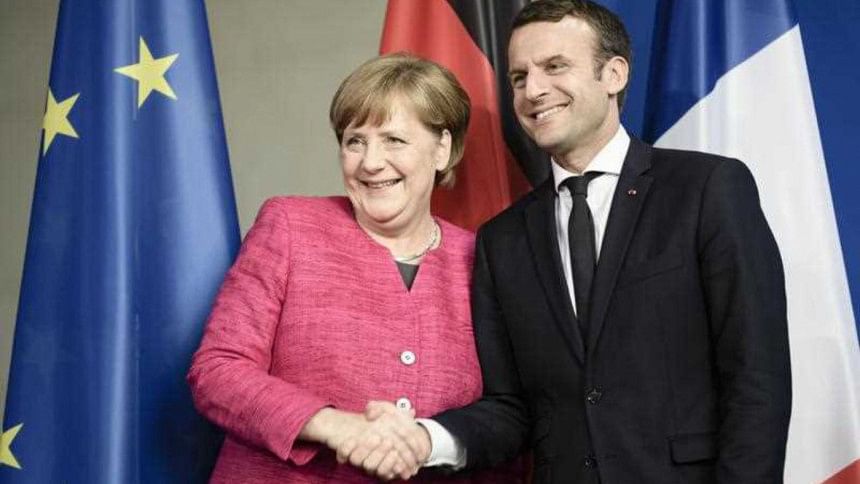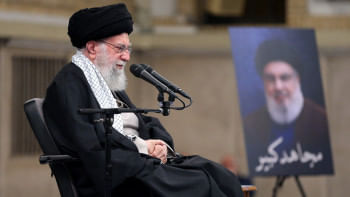Is the bastion against Europe’s far-right hobbling?

Political ideologies ranging from populist and nationalist to far-right neo-fascist have been making inroads into the European political landscape. In fact, capitalising on a migration crisis, economic inequality, increasing disillusionment with the European Union and a sense of lost national identity, right-wing parties have made electoral gains in a growing number of European countries.
A BBC News story titled "Guide to the nationalist parties challenging Europe" unveiled on May 23, 2016, the extent to which voter support has been garnered by far-right parties. Listed are countries with right-wing political parties having voter support of 10 percent above just a year and a quarter ago. You had Netherlands with 10 percent far-right presence followed by Sweden 13, France 14, Finland 18, Denmark 21, Hungary 21, Switzerland 29 and Austria 35.1. To add to this, in many countries, nationalists received higher scores in European Parliament elections and opinion polls.
An auspicious break with the trend, however, occurred in Austria centring around the presidential election of the country last year. The ruling far-right Freedom Party fielded Norbert Hofer as its candidate, while former Green Party leader Alexander Van der Bellen stood as an opposition candidate. Van Bellen won convincingly in a two-round election.
The Austrian president on his assumption of office had women members of parliament wear headscarves as a goodwill gesture to Muslim women.
Nevertheless, in a general environment of populism and insular nationalism—vaunted by Trump—people looked to elections in France and Germany to turn the table on the far-right march. Our expectations have only been partially met; Chancellor Angela Merkel has won a fourth term but with a critically reduced margin; and French president Emanuel Macron has stopped Far-right Le Pen on her tracks.
As for Merkel, the conservative CDU/CSU group saw their tally of seats slashed from 309 to 246 leaving her to cobble up a coalition government with smaller parties. Her primary task is to neutralise a newly empowered hard right—Alternative for Germany (AfD) Party. It entered the Reichstag for the first time with 93 deputies capturing 13 percent of the vote.
The Social Democrats (SPD) received 20.5 percent of the vote, a humiliating post-war record! It has ruled out cooperation with Merkel; as a junior partner in the "grand coalition" it had played a part in leading Germany for eight of Merkel's twelve years in power. All this makes the quest for a ruling alliance that much more complicated, let alone governing the country with an iron will.
Policy wise Merkel is likely to be less generous to immigration and grant of asylum. She is reportedly mulling the possibility of restricting migration families attached to those already in Germany.
Coming to Macron, he is widely reported to be constantly changing his positions. As Francois Hollande's Minister of Economy, Industry and Digital Affairs he was not a member of the president's socialist party. In 2006, Macron declared to journalists, "Honesty forces me to tell you that I am not a socialist." He added on TV that he was on the left.
He promised to overcome what he called France's "sectarianism and sterile oppositions" and claims to be "neither left nor right". After three months of presidency he is starting to sound very much like "never left, more right".
Galles Candor, a historian and political analyst says, "Macron's fiscal and labour policies 'seem to be going the way of employers.'" The journal Liberation, in an article titled "Macron is not left wing" added that the left has historically sided with the workers.
"His neither-nor logic has limits," points out an observer, as one could argue that the glass is half-full or half empty, meaning an unattended void. It could backfire.
On the topic of immigration, he was perceived to be a social liberal, "something that has changed since the election." On security and immigration, his policies are tougher than Hollande's.
With his approval rate plummeting, there is a sliver of a possibility that he may take an authoritarian path.
Shah Husain Imam is a commentator on current affairs and former Associate Editor, The Daily Star.
E-mail: [email protected]





Comments